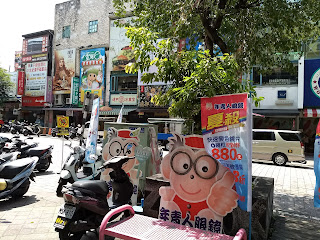Can we chat?
SPOILER ALERT: This week’s post isn’t all fun and games. But it’s important.
I was going to blog about social constructs this week because I’ve been thinking about the ways these constructs guide our behavior and even determine aspects of our identity. But then I thought -- nah, to honor next week's national impetus to be grateful (and to eat more than anyone thinks they can), I'll blog about pain. Which sounds odd, I know. But I can’t write about pain on the actual day of Thanksgiving, so here goes.
Part of being human, I think, is coping with occurrences we aren’t truly grateful for. Or that we’d prefer to live without entirely. Like words that harm and actions that haunt; like diseases that threaten to destroy our bodies; like the deaths of people we love; like things that just plain suck.
So why, to borrow a cliche that feels more like a valid question than an actual cliche, do bad things happen to good people? The short answer (from a laywoman who enjoys occasionally engaging with philosophy) is that life would be inexorably changed if we could choose to experience only positive moments. Sounds logical and sane, right? But I still don’t know why honest people are taken advantage of or why bullies and racists are sometimes able to find support among their peers. I hate that asshole who finds happiness and success just as much as anyone else does, and I can’t fathom why toxic people don’t end up alone.
Yesterday I asked my students what they most believe in. Some said equality, some said education, some said karma because their positive actions should lead to more positive actions and even positive results, right? I didn’t mention this to the wide-eyed kid from a rural, Northern California town who confidently raised his hand to share his response, but I don’t think so. I just can’t believe in karma. I think you can be kind and gentle and giving and still die prematurely of heart disease. I think you can regularly offer aid to someone who’s homeless or spend hours volunteering with children and still watch, powerless, your own child suffer. I think you can work to improve your community and still observe people destroying the peace in that community. I think that's life.
I’m not trying to be bitter -- I’m just trying to be real. We can’t ignore our sorrows or pretend that pain doesn’t exist. Pain shapes us as much as joy and success. But, seriously, why?
The only response I can think of is this: people pull together when they’re suffering. They reach out, they unite, they empathize. Perhaps this is evolution’s dirty little secret: we need pain in order to come together. And we need to come together to survive.
I have a girlfriend who volunteers as a grief counselor. At any hour of the day, she helps people of varying ages and backgrounds work through horrific and unexpected experiences. I don’t know how she listens to their stories without falling apart, but she does. Thank goodness she does.
This Thanksgiving, I’m not suggesting we celebrate our pain but rather that we recognize it as part of our unique journey and that we find deep gratitude for those who have connected with us and helped us through our suffering. We don’t need to thank our forefathers for that. We need to thank each other.



This comment has been removed by the author.
ReplyDeleteI think you are right on, "people pull together when they are suffering". I often say the key to life is to maintain the crisis perspective without the crisis, but alas, I think the pain is necessary. As Glennon Melton says "life is Brutiful" brutal and beautiful entwined.
ReplyDeleteI think the biggest challenge is to be thankful always even in our pain. No one likes to experience pain but inevitably we all do and it's how we deal with the pain that shapes us as a person. I"m thankful for you!
ReplyDelete